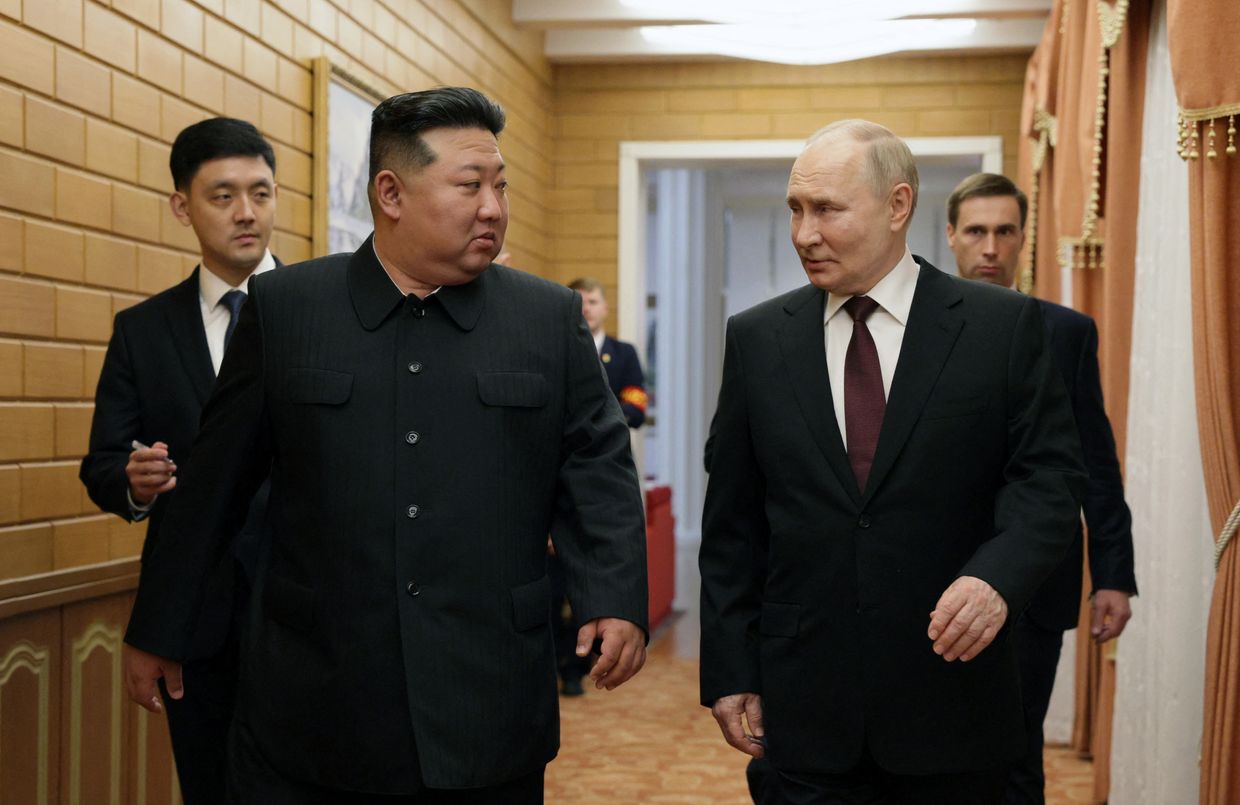Opinion: Landmark case could bring justice for Vinnytsia victims and transform international law

A woman lays flowers near a building heavily damaged in a Russian attack on Vinnytsia, Ukraine, on June 14, 2022. (Alexey Furman/Getty Images)

Daniil Ukhorskiy
Litigation officer at Legal Action Worldwide (LAW)
Liza Dmitrieva, a four-year-old girl with Down’s syndrome, was walking with her mother to a speech therapy appointment in the central Ukrainian city of Vinnytsia on July 14, 2022. As her mother filmed her playfully pushing her stroller, she didn’t know that those were to be the last moments of Liza’s life. Minutes later, Russian missiles struck the city, killing Liza and severely injuring her mother. The attack killed a total of 29 people and injured over 200 more.
Such attacks have been a daily reality across Ukraine for the last two-and-a-half years, killing an average of over 40 civilians per day. Just last week, a barrage of Russian rockets hit multiple civilian targets in Kyiv, including the city’s main children’s hospital.
These killings are often difficult to prove illegal under international humanitarian law, also called “laws of war,” which govern the conduct of hostilities. When an attack is directed at what is deemed to be a “legitimate military target,” civilians, including Liza, are often considered “collateral damage,” with no way to obtain justice or redress.
International humanitarian law, codified in its modern form after World War II through the Geneva Conventions and accepted by most countries, was a hard-fought compromise between the militaries of different countries. It aims to maximize civilian protection while acknowledging the inevitability of civilian casualties in armed conflicts. Importantly, it does not distinguish between aggressors and defenders but establishes a basic minimum standard, urging all parties involved in conflicts to uphold it.
Faced with the horrifying loss of life that Russia’s blatant aggression against Ukraine has caused since February 2022, this tried-and-true approach feels deeply inadequate. This week, just as Vinnytsia families are mourning two years since losing their loved ones, Legal Action Worldwide, the Clooney Foundation for Justice, and Truth Hounds submitted a complaint to the UN Human Rights Committee on behalf of 18 of those families, including Liza’s.
We had to find another way to seek justice for the victims – and we did.
The Committee is a body of independent experts responsible for monitoring the implementation of the most influential human rights treaty: The International Covenant on Civil and Political Rights. Unlike the modest aims of international humanitarian law (governing the laws of war), human rights law provides ambitious, broad, and universal guarantees. The Committee considers complaints from individuals alleging violations of these rights. We contend that Russia’s assault on Vinnytsia constitutes a breach of the victims’ right to life under Article 6 of the Covenant.
A few years ago, this scenario may not have been possible. Traditionally, a killing during wartime was only considered a violation of the right to life if it also breached international humanitarian law, often under the guise of "collateral damage" without distinguishing between defender and aggressor. However, this outlook changed in 2018 with the Human Rights Committee’s interpretation (General Comment 36), which asserted that all killings resulting from acts of aggression – such as Russia’s invasion of Ukraine – constitute violations of the right to life. This welcome development recognized the inherent injustice of a war of aggression.
The broader implication of our argument is that the families of all civilians killed in Ukraine, as well as soldiers who died defending their country from the invasion, can pursue justice and seek redress.
This approach has not been tested before, mainly because Russia’s full-scale invasion of Ukraine is the first war since the adoption of General Comment 36 in 2018 to fit the definition of aggression. The families we represent could make history and set a global precedent through this complaint.
Indeed, a favorable decision by the Committee will be momentous in both practical and symbolic ways. The decision would recognize that Russia violated the right to life of victims of the missile strike and reaffirm their entitlement to remedies, including compensation. It would reaffirm the norm against aggression – “the supreme international crime,” in the words of the Nuremberg Tribunal – and for the first time, qualify Russia’s deadly attacks in Ukraine as a violation of a core international human rights treaty.
Multiple efforts are currently underway to hold Russia accountable for crimes committed in Ukraine, including over a hundred thousand war crimes cases under investigation by Ukrainian authorities, investigations by the International Criminal Court, and European countries. So far, none of them have offered justice to the victims of the Vinnytsia attack and other similar attacks. The Committee’s decision can fill this gap.
Speaking to Liza’s parents and other families is the hardest part of our work. We know we can do nothing to bring back Liza or the other families’ loved ones. In some cases, we cannot even find a way to remedy the injustice they have suffered. In this case, we are doing everything we can to make sure that these tragic deaths are no longer just “collateral damage.”
It is now up to the UN Human Rights Committee to act on the complaint and use this important opportunity to deliver justice for Liza’s parents, for other Vinnytsia families, and, ultimately, for thousands of other Ukrainians killed by Russia’s aggression.
Editor’s Note: The opinions expressed in the op-ed section are those of the authors and do not purport to reflect the views of the Kyiv Independent.












